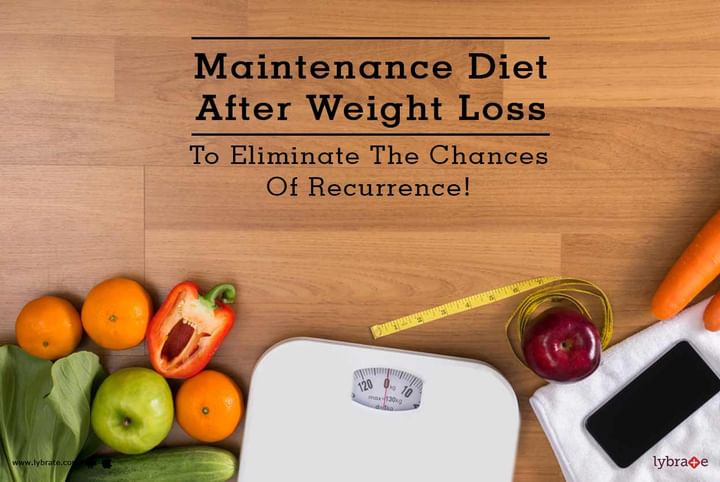Maintenance Diet After Weight Loss To Eliminate The Chances Of Recurrence!
Losing weight may be easier than maintaining weight loss. In fact, there are many people who lose weight only to regain it within two to three years. Losing weight promotes health benefits. One can bring down blood cholesterol, blood sugar, blood pressure, and stress on cardiovascular and musculoskeletal systems. But if one loses weight only to gain it, these risk factors can come back and nullify all the gains.
This is why it is very important that one maintains lost weight and reap its health benefits over his or her lifetime. However, in many cases, people regain lost weight since they experience a drop-in metabolism while continuing aggressive weight loss. As the rate of burning calories comes down, people regain weight despite taking a normal diet. This calls for a specific maintenance diet after weight loss.
Let us see what kind of maintenance diet can help maintain weight:
Avoid Rigid Restrictions:
People tend to follow rigid restrictions about certain diets in order to avoid weight gain. However, this may be fraught with pitfalls. It is common for people to crave something that is forbidden for them. This may lead to overeating of favorite food. This has the potential to nullify all the gains that one achieves painstakingly over a period of time. So, one needs to keep in mind that rigid restrictions usually don’t augur well for weight maintenance.
Don’t Follow Aggressive Weight Loss Strategies:
Some people, who in their zeal to lose weight, go for aggressive weight loss strategies. This may help to bring down weight too soon, but it may also bring down body’s metabolic potential. When this happens, the rate of burning of calories also comes down. In that case, even a normal diet may add to the weight. So even during the weight loss phase, it is not a good idea to follow an ultra-low-calorie diet.
Include Some Protein Portions at Each Meal:
Protein has the ability to reduce hunger pangs since it can suppress the hormones responsible for hunger. So, it is a good idea to have some protein at each meal. In fact, the snacks that you take between meals also need to include protein to keep you full for a long time. Nevertheless, one needs to choose low-fat protein like fish, low-fat dairy, lean cuts of poultry and meat, etc.
Get Some Healthy Breakfast:
A good breakfast has the potential to power a person throughout the day. A good breakfast is one that contains a balance of every essential nutrient and is not loaded with carbs. One can keep carbs at a minimum by bringing down sweets and reducing the amount of starchy food. A person also needs to include a lot of green vegetables and fruits.
Snack with Something That Satiates, But Does Not Add to Calories:
Fruits like cucumbers have the potential to satiate the hunger, but add only minimally to the calories. One can take cucumber and other fruits like cucumber to snack as they do not affect weight loss.
Conclusion:
Losing weight requires a lot of effort, however, it can be regained if not maintained properly and regularly. Obesity comes with a lot of diseases. This is why it is important that if a person loses weight, he/she must maintain it. Maintaining weight is not a tough job if done in the right way with the proper guidance of doctors and nutritionists.



+1.svg)
